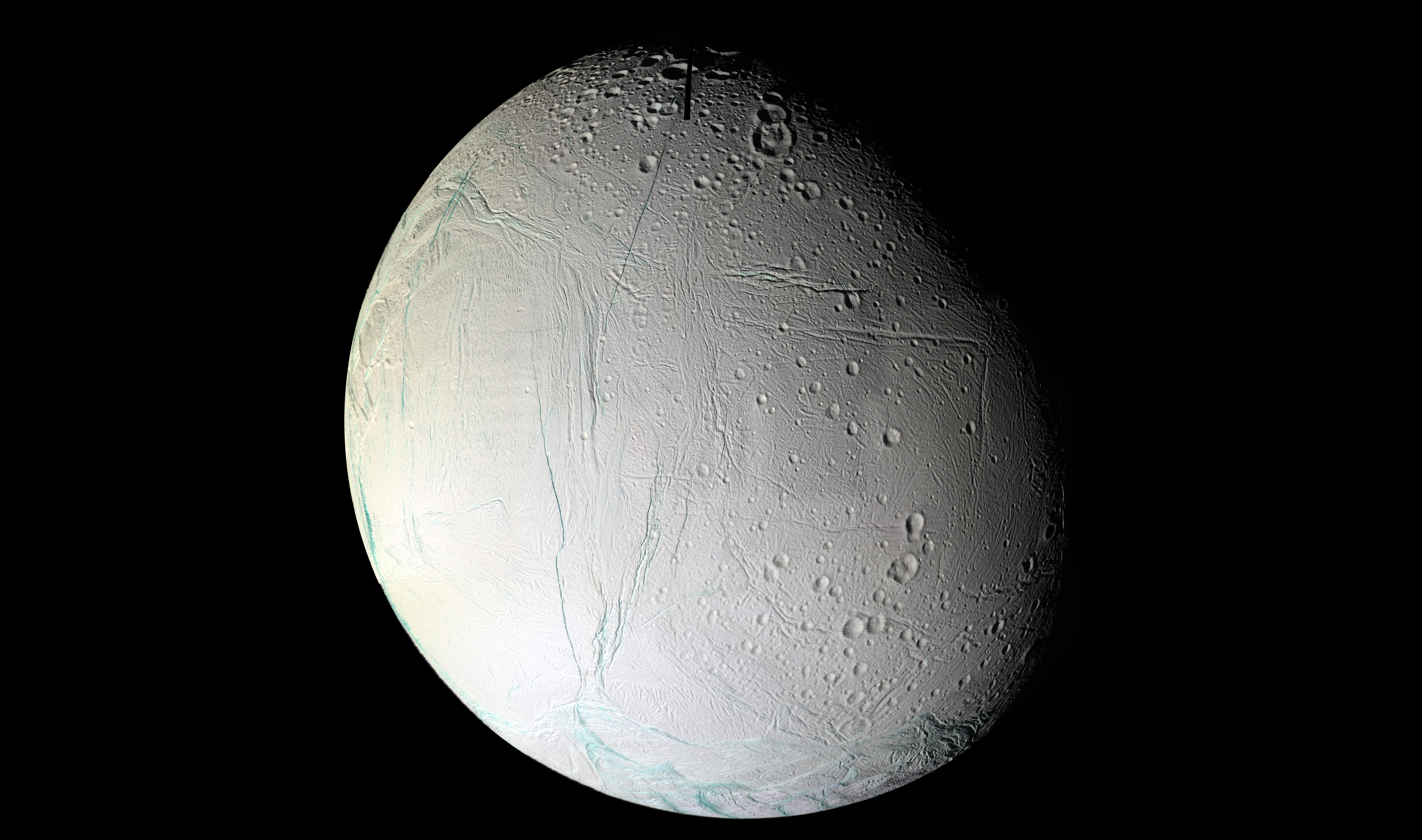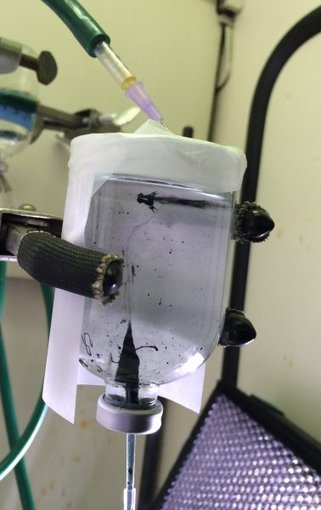-
Hydrothermal Vent Experiments Bring Enceladus to Earth
December 08, 2017 / Written by: Charles Q. Choi
Saturn’s moon Enceladus has an ocean beneath the ice, and at the interface between the ocean and the rocky core, hydrothermal vents could be breeding grounds for prebiotic chemistry. Credit: NASA/JPL/Space Science Institute.Laboratory experiments on Earth can now simulate the conditions under which life might emerge on Saturn’s moon Enceladus, as well as other icy alien worlds, according to new research published in the September 2017 issue of the journal Astrobiology.
Since there is life virtually wherever there is water on Earth, researchers looking for alien life often focus on planets in the habitable zones of stars, which are the regions around stars where it is warm enough for worlds to possess water on their surfaces. However, in the past few decades, scientists have increasingly found evidence for oceans – and, potentially, life – hidden under the icy crusts of places such as Jupiter’s moons Europa, Ganymede and Callisto, and Saturn’s moons Enceladus and Titan.
On Earth, life is often thought to have originated near hydrothermal vents, which include hot springs on land, as well as fissures near undersea volcanoes. Much research has suggested that icy moons might also host active hydrothermal vents on their ocean floors. Enceladus is of particular interest because data from NASA’s Cassini spacecraft suggests there is activity within its ocean involving temperatures exceeding 90 degrees Celsius (194 degrees Fahrenheit), which in turn hints at geothermal heating by hydrothermal vents.

Iron sulfide hydrothermal chimney precipitated in laboratory simulation of a vent on an ocean world such as Enceladus. Credit: Laurie Barge.Source: [Astrobio.net]
- The NASA Astrobiology Institute Concludes Its 20-year Tenure
- Global Geomorphologic Map of Titan
- Molecular Cousins Discovered on Titan
- Interdisciplinary Consortia for Astrobiology Research (ICAR)
- The NASA Astrobiology Science Forum Talks Now on YouTube
- The NASA Astrobiology Science Forum: The Origin, Evolution, Distribution and Future of Astrobiology
- Alternative Earths
- Drilling for Rock-Powered Life
- Imagining a Living Universe
- Workshops Without Walls: Astrovirology